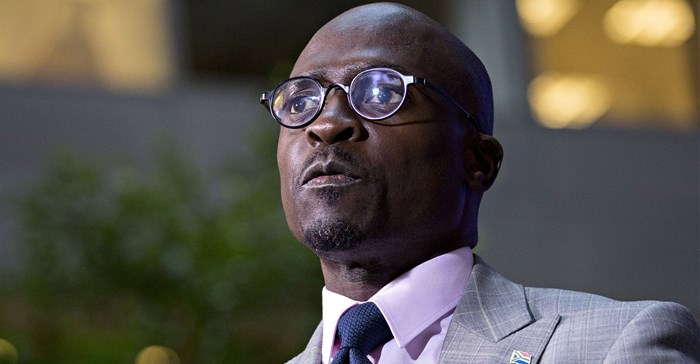The spectre of state capture, mismanagement and poor governance of key state-owned enterprises (SOEs) remain the Achilles heel of South Africa's public finances and the economy's competitiveness.
In his medium-term budget speech, Minister Malusi Gigaba frequently referred to the need for tough decisions about SOEs, but these still seem to be subject to further processes and consultation before being implemented. Progress has indeed been made with a new board for South Africa Airways and the promise of a new boards Eskom. Yet there have been no bold new strategies for basically overhauling the SOEs, says Professor Raymond Parsons from North West University’s School of Governance and Business.
“The SOEs continue to be a burden on fiscal coffers with more and more funds being redirected into SAA. In addition, foreign lenders are no longer willing to roll over any of the debt incurred by SOEs, even if it is backed by government, which is quite worrisome. This speaks to the amount of distrust they have regarding the South African government’s ability to perform on those guarantees,” says Bianca Botes corporate treasury management, Peregrine Treasury Solutions.
Bailouts
So far, Gigaba has authorised R5.2bn in bailouts for South African Airways (SAA) in only seven months, which have served to prevent the bankrupt airline from defaulting on its government guaranteed debt.
To keep the airline flying, government is looking to dispose of a portion of its Telkom shares to avoid a breach of the expenditure ceiling. Gigaba said the government would have an option to buy back the shares at a later stage, and that more details would be provided by March 2018.
However, Tertius Troost, tax consultant at Mazars believes that Treasury’s plans to rescue South African Airways (SAA) could also be problematic. “The minister makes mention of selling around R4.95bn Telkom shares to fund SAA, which we do not believe to be prudent. Treasury would in effect be getting rid of a good asset to finance a bad one.”
An amount of R13.7bn has now been allocated to forestall calls against guaranteed debt by the creditors of SAA and the South African Post Office.
Several others, including Denel, South African Express and the South African Broadcasting Corporation face liquidity shortfalls, and will likely require some form of intervention from government.
The minister said the government remains committed to operating within the expenditure ceiling over the medium term. In the current year, however, the recapitalisation of SAA and the South African Post Office put the ceiling at risk of a R3.9bn breach.
Eskom and the nuclear deal
“For its part, Eskom will be a leech on the system moving into the 2018 year. But the minister says the power supply organisation is simply too important to fail and government will do everything in its power to keep it afloat. This ultimately means more taxpayer money being poured into Eskom, in addition to steep electricity price increases,” says Botes.
Eskom is unable to borrow from the markets and has already drawn down R218bn of its R350bn government guarantee. Government has extended its R350bn guarantee from 31 March 2017 to 31 March 2023 because of delays in Eskom¹s capital investment programme. The extension of the guarantee will allow Eskom to use the remaining portion to complete its planned capital expenditure programme.
Minister Gigaba has delved into the contingency reserve to the extent of R16bn over the next three years in an attempt to make the books balance. This leaves government little room to manoeuvre if risks to the expenditure ceiling materialise.
Yet, against this backdrop, Eskom already has the spot picked out for a new nuclear power station - right next door the the existing one - a build that could cost trillions. And although there was only a brief reference to nuclear power in the minister’s speech, given the poor state of SA's public finances, it is hard to see how SA can afford the nuclear project in present difficult economic circumstances.
Excess power
In addition, he mentioned that Eskom is currently producing more power than the country needs. “This creates somewhat of a contradiction, since Minister Gigaba had previously said that the construction of nuclear power in South Africa would proceed at a rate that the country could afford. Yet by admitting that Eskom is at excess capacity, it raises questions over whether a nuclear build would still be necessary,” questions Mike Teuchert, national head of taxation at Mazars.







































